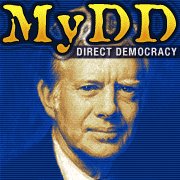"The Check is in the Mail" Stimulus Package
Strains on the I.R.S. Could Delay Rebate Checks for Months (via NYT):
The checks will be in the mail — eventually.
But President Bush’s plan to send payments to 117 million households to stimulate the economy would impose major strains on the Internal Revenue Service, delays in answering calls to the agency and require a host of technical rules to determine who ultimately collects the benefits, officials said Thursday.
The deal between the administration and House leaders calls for checks to be issued 60 days after the president signs a law authorizing the one-time payments. That may be in as few as four or five weeks if the full House and the Senate come to terms on the details quickly.
In theory, the first checks may arrive in early May, if nothing goes wrong.
Even as the negotiators crunched the numbers, the Congressional Joint Committee on Taxation warned that the tax-filing season could be disrupted and hinted that it might be June before checks were issued.
...
Determining who is eligible and for how much money will require major reprogramming of an outdated computer system that relies on technology long since abandoned by business. The software changes will have to be made as an estimated 135 million individual income tax returns arrive between now and April 15.
The agency has already rushed to adjust its computers because of a temporary patch to reduce the effects of the alternative minimum tax that was not agreed on until just before lawmakers left Washington in December. More than two million taxpayers affected by the alternative tax cannot file until at least Feb. 11.
Treasury Secretary Henry M. Paulson Jr. told reporters on Thursday that he did not believe the tax patch would affect the new checks. Agency officials who would not speak on the record because they were not authorized were not so sanguine and pointed to the Congressional joint committee report’s warnings about adding to the workload in the big filing season.
Nobody has authorized the agency to hire extra workers to reprogram computers, enter new data, issue checks and answer calls. The agency will divert resources from serving taxpayers and enforcing tax laws.
A surge in calls accompanied the rebates that Mr. Bush sponsored in 2001, straining the ability to answer calls from people with tax problems and causing other logistical problems.
Charles O. Rossotti, the executive who was the internal revenue commissioner in 2001, warned amid that rush to issue rebate checks that “compression of analysis, testing and production of complex programs poses very high risks of errors in issuing these refunds such as taxpayers receiving incorrect amounts or notices with incorrect information.”
(h/t John Aravosis @ AMERICAblog)

















